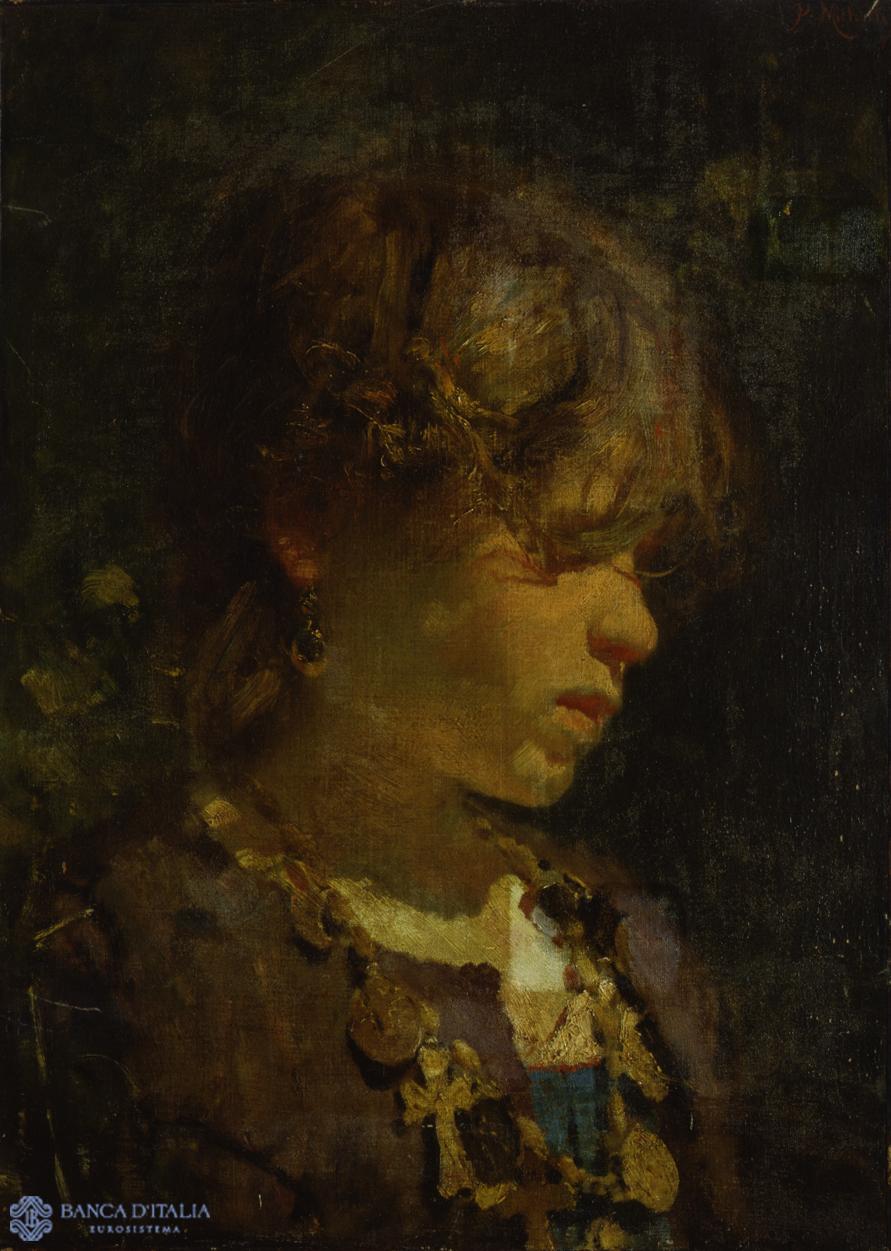The use of light to animate colour, which flares up suddenly and then is attenuated in areas of shadow, was the core problem of Francesco Paolo Michetti’s artistic exploration from the first years of his training at the Naples Academy, when he attended the meetings of the Repubblica di Portici. Exploration that evolved especially after his encounter with the Catalan artist Fortuny, who offered him the key to new discoveries rendering possible a more supple spreading of colour.
Here, the light falling from above on the girl’s pouting face and on part of the bodice of her elaborate costume is the real protagonist of this painting. The subject’s forehead, hidden by stray locks of hair, and the earlobe adorned with a pendant present to us the image of a peasant girl, probably Abruzzese, in one of the numerous studies that Michetti did in the 1870s and 1880s before bringing into focus, shaping, with a wealth of detail, the large-scale compositions of sacred rites of his native Abruzzo. The light crisscrossing of the brushstrokes that touch the girl’s hair and chest, leaving a transparent trace, are evidence that this might well be a sketch – intense, but a study nevertheless, to be taken up again later, according to a procedure that was usual for Mancini, who was among the first artists to use photographs in order to choose the poses and details of his figures. A tender feeling envelops the image, which in that luminous contact opens like a flower, communicating the “joyful” and affectionate feeling with which the artist interprets the most cordial aspects of his rustic and pastoral Abruzzo.
Paolo Michetti, Bimba al sole
Bimba al sole
Painting
19th century AD
Portrait

Artist
Date
1870
Material and technique
Oil on canvas
Measurements
46 x 34 cm
Compiler
Augusta Monferini
